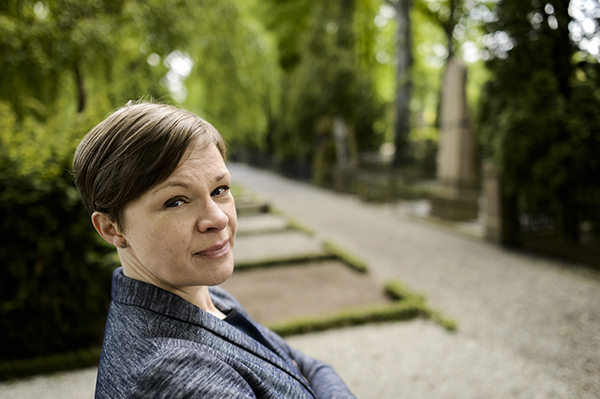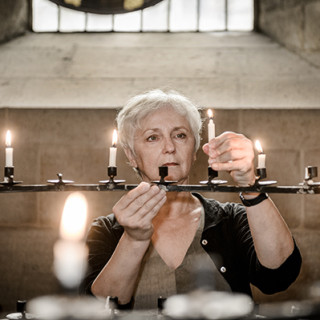Life after death – on the distribution of inheritance
You can’t take anything with you when you die. Perhaps you should think about how your property will be distributed after your death and what this means for your surviving next of kin. Are the statutory rules on inheritance sufficient or should you write a will? This depends on your family situation, among other things; whether you are married or living with a partner, and whether there are stepchildren.
Succession is governed by the inheritance code which dates back to the Middle Ages – and it has not changed much over the years. According to the medieval legislation, children should primarily inherit from their parents. Over the centuries, land-owning farmers in the Nordic area had a strong position. The land was handed down and although all the children born within a marriage were considered to have the right to inherit something, the usual arrangement was that the farm was kept by one heir while the other children were compensated financially or in some other way.
Children’s rights
Today all children have equal rights to inherit from both their parents regardless of gender, whether they are born outside matrimony or are stepchildren (children to whom only one party in a marriage or a civil partnership is a parent). These changes were introduced as rural society started to change, people moved into cities and commercial transactions involving land increased during the 1800s and the early 1900s.
Previously, all children had a right to their statutory share of the inheritance immediately after the death of a parent, but that was changed in a 1987 reform. Today the rights of the surviving spouse are considered more worthy of protection than the immediate needs of the spouses’ common children to obtain their inheritance. Therefore, the surviving spouse now has the right to beneficial enjoyment of the estate of the deceased, i.e. their common children have to wait for their inheritance until both parents have died. This does not apply to stepchildren, who have the right to receive their statutory share of the inheritance immediately following the death of the parent. In the case of non-marital cohabitation, both common children and stepchildren have the right to receive their entire inheritance, as cohabiting partners do not inherit from one another.
Think ahead
What do you do if you want your non-marital cohabiting partner to inherit from you? Or if we want to prevent our stepchildren from receiving their statutory share of the inheritance immediately? Or if we don’t want all our common children to inherit the same amount? You have to think about these things in advance, discuss them with your next of kin and agree on how best to draw up your will, according to Elsa Trolle Önnerfors, legal historian specialising in family law at Lund University’s Faculty of Law.
“In Sweden it is never possible to disinherit direct heirs from their statutory share of the estate against their will. You can certainly write a will in which, for example, you leave everything to one child or the stepchildren do not receive their statutory share of the estate, but direct heirs always have the right to contest the will – that is, to appeal to a court within a certain period of time”, says Elsa Trolle Önnerfors.
Wills – a history of disputes
Elsa Trolle Önnerfors wrote her doctoral thesis on contested will cases in the late 1600s – an exciting time, as it was then the writing of wills really took off in Sweden.
“In the 1600s, the wish of the wealthy nobility to preserve the integrity not only of their land but also of their newly acquired riches led them to establish wills in the German manner. They wanted to decide for themselves how their assets would be passed on and avoid dividing them among many children”, she explains.
These wills led to many disputes as the other direct heirs could contest a will in court. Another problem was that the courts did not have any functioning laws and ordinances concerning wills on which to base their judgements in the 1600s.
“And we have now had the same problems for 400 years”, says Elsa Trolle Önnerfors. “Human nature is the same as it was in the 1600s. Fights over money, siblings at loggerheads – everyone has an opinion. That is what makes family law and inheritance law so exciting”.
In recent years, the number of disputes – contested wills – in our courts has increased by almost 80 per cent. Between 2000 and 2012, the number of disputes rose from just under 150 to around 260.
“What we see is merely the tip of the iceberg” according to Elsa Trolle Önnerfors. “I think the increase might depend in part on changing family relationships, with many stepchildren and cohabitations, and in part on the fact that more attention is being paid to technical errors in wills”.
Relatively few people write wills in Sweden today compared to other countries which do not have our type of inheritance law. This may be because many families are satisfied with existing inheritance rules or because they do not want to think about and discuss death.
“But wills are necessary, for example to limit the inheritance rights of a child in favour of the surviving spouse, or to allow cohabiting partners to inherit from one another at all”, concludes Elsa Trolle Önnerfors.
Text: Pia Romare
Photo: Kennet Ruona
Facts
-
Advice on writing a will
-
Write a will if you want…
• one or several children only to inherit their statutory share of inheritance and not your entire estate.
• your cohabiting partner to inherit from you. If you have children, see following point.
• stepchildren to wait to claim their statutory share of inheritance until the surviving spouse has died and to make an agreement with stepchildren. In case of cohabiting partners, where wills have been drawn up, this means reaching an agreement with both the common children and any stepchildren.
If you are an heir who has been completely left out of a will – bear in mind that you must contest the will within a certain period in order to obtain at least your statutory share of the inheritance. The will must be officially contested within six months of the heir being notified of its existence.
-
Definition of inheritance law and statutory share of inheritance (NE)
-
Inheritance law, the statutory right of the heirs to the estate of the deceased, is based on kinship, adoption (equated with kinship), marriage and registered partnership (equated with marriage).
The children and adopted children of the deceased (the direct heirs) always have a right to their statutory share of the inheritance which provides some protection against the testator giving away his or her entire estate in a will. The statutory share of the inheritance is half of the share to which the heir would have been entitled in the absence of a will. If a will encroaches on the statutory share of the inheritance, the heir must contest the will within a certain period of time.
-
Inheritance code facts
-
The inheritance code which governs inheritance and testamentary law originates from the agricultural society of the Middle Ages. Since the 1300s we have only had four different versions of the inheritance code in Swedish law. The current version dates from 1958.
Children born outside wedlock have had certain rights to inherit from their mother since 1866. In 1905 they obtained the right to inherit from their mother and her relatives on the same conditions as children born within marriage. The right to inherit from their father was only given to illegitimate children in 1970, which means that only then did the children of unmarried parents who were living together get the same inheritance rights as the children of married parents. The inheritance law of 1928 introduced the precursors of the rules we have today on the inheritance rights of the surviving spouse. If the deceased spouse leaves no rightful heirs, the surviving spouse inherits the totality of the estate of the deceased. The latest amendments were implemented in 1987, establishing the right of the surviving spouse to beneficial enjoyment of the estate of the deceased until his or her own death.








